‘Even dissent is controlled’: How Hong Kong’s world has changed
China’s new election system in Hong Kong has wiped out years of struggle for more democratic freedoms.
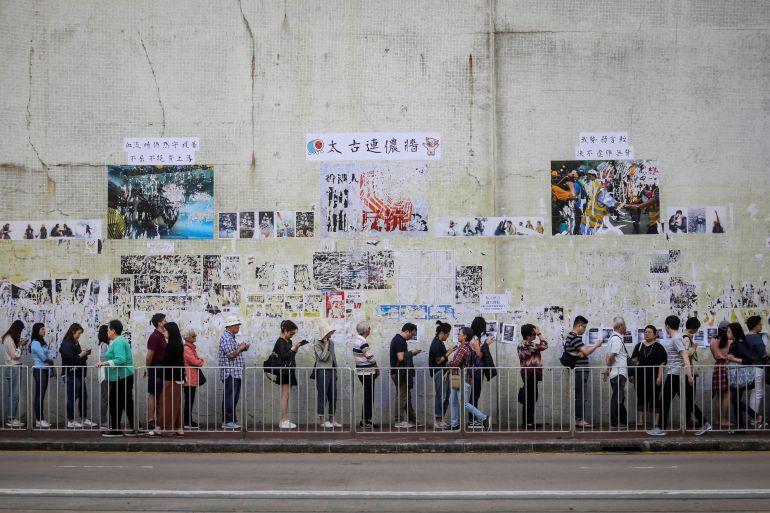
Hong Kong – In mass rallies and large election turnouts, many people in Hong Kong have pushed hard to build a democratic system within China’s one-party state.
Since 1989, when Chinese soldiers silenced the Tiananmen Square protests by opening fire on those gathered there, many Hong Kong people have demanded more autonomy from the Chinese government. The way to guarantee that, they said, was universal voting rights and open, free elections – a Hong Kong ruled by Hong Kong people.
Keep reading
list of 4 itemsUS sanctions 24 Chinese officials over Hong Kong crackdown
Hong Kong court grants bail to more activists in subversion case
US says electoral changes in Hong Kong ‘assault on democracy’
Those dreams appeared to have died on Tuesday.
Nearly 24 years after China agreed to allow selected rights and autonomy in the former British colony, the national government will fully steer the city’s governance with a raft of changes to the territory’s elections system. The revisions, which will certainly be rubber-stamped by the local legislature, are destined for the city’s mini constitution without any input from its residents.
An elections committee with central state officials and influential corporate blocs loyal to Beijing will screen candidates for the city’s chief leader and legislators.
Galling to many in the territory is that police will vet nominees to ensure their political beliefs are not in opposition to the sweeping national security law that China imposed in June last year, which has been used to imprison some of the most outspoken critics.
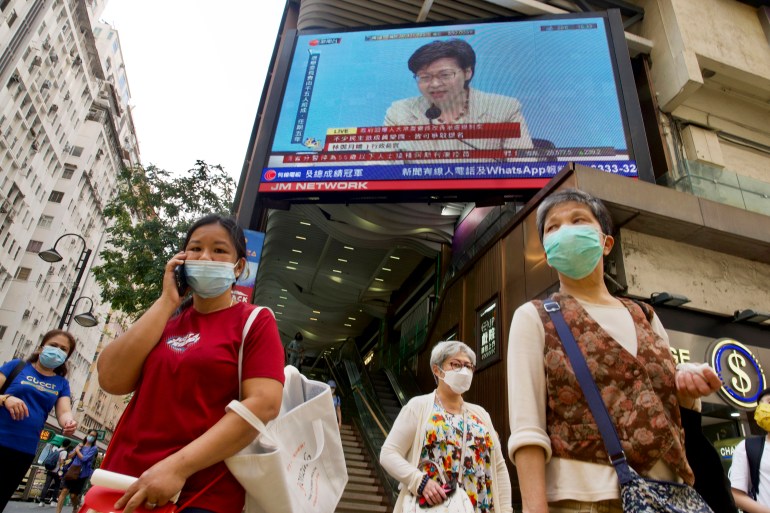
Lee Cheuk-yan, a labour leader and former legislator who witnessed the crackdown in 1989, is among the many longtime campaigners facing multiple criminal trials for protesting against the government.
China’s new laws are a “safety measure in the eye of the Communist Party, which is trying to get rid of dissent,” he said in his union office. “Everything is tightly controlled. Even the dissent is controlled.”
Critics say that the revisions will all but silence minority views and eliminate checks on the power of Beijing and the Communist Party in the once free-wheeling city, shifting Hong Kong from a territory with partially free elections to one where the central government has effectively shut down all political debate.
‘A ticket to jail’
Western governments have condemned the imposed revisions.
British Foreign Secretary Dominic Raab said the changes were a “clear breach of the Joint Declaration,” the 1984 agreement between Britain and China that stipulated Hong Kong’s rights would be guaranteed until 2047. The changes, he said, undermine the freedoms of the Hong Kong people and break Beijing’s international obligations. US Secretary of State Antony Blinken said the measures reduced democratic representation and stifled political debate.
Within the space of a year Hong Kong has lost two pillars of any liberal democracy, said Ma Ngok, a professor in government at the Chinese University of Hong Kong. The security law has ended free speech and has led to the imprisonment of the most popular civic leaders and now it will become a tool to weed out candidates who will oppose the government.
“Who is going to run?” asked Ma. “You put yourself at risk of everything. It becomes a ticket to jail.”
With the delayed elections for the Legislative Council now scheduled for December, Ma says the moves will probably mean low voter turnout instead of high levels of participation as has been the case in the past.
On Tuesday, the city’s leader, Beijing loyalist Carrie Lam, insisted that even with the changes there would be no big barriers to stop the opposition from seeking office.
Former legislative President Jasper Tsang, a retired pro-government politician, told Al Jazeera it was understandable that Beijing would want loyalists and not opponents serving in the legislature and heading Hong Kong’s executive branch.
Governance had become impossible with the pro-democracy legislators’ frequent use of filibusters to block laws, he said. The nominees who ran in last summer’s primary pledged to paralyse the government if it did not accede to their demands. The security law, he pointed out, bars interfering in the day-to-day work of legislators.
Considering the dominant role of the Chinese Communist Party, Beijing had no choice, Tsang said. Beijing believed “the election system in Hong Kong cannot guarantee the election of patriots,” he said. An election that could promote a blatantly anti-central government, anti-China platform was “not acceptable”.
“The Chinese Communist Party is …. omnipresent, omnipotent. It is not just a political party,” Tsang said. “The ruling role of the Chinese Communist Party cannot be compromised.”
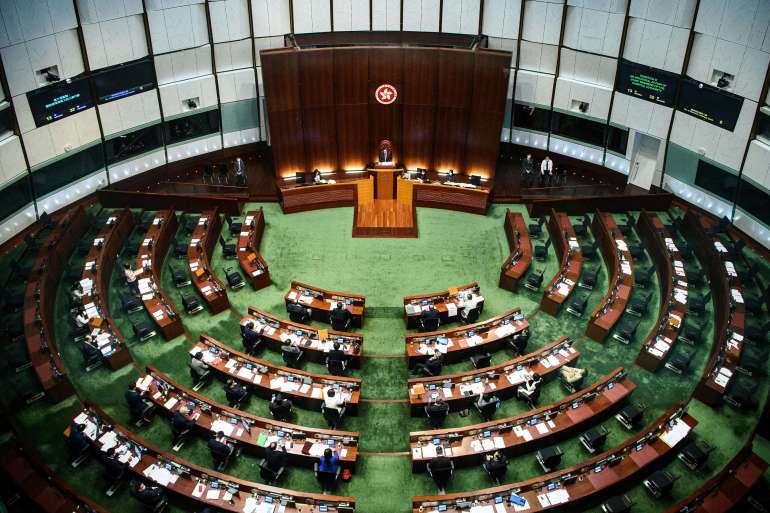
The new election laws ensure that an election committee of Beijing loyalists will control the largest share of legislative council seats – 40 – while loyalist trade groups will get 30. The share for directly-elected seats, where the pro-democracy candidates usually do well, will shrink from 35 to 20. Potential candidates will be vetted through the police force’s national security unit and no one will have the right to appeal a rejection.
Given these restrictions, elections and future sitting legislatures will not allow any meaningful opposition or criticism, pro-democracy politicians say.
“It is really difficult for us to stand for election, the way the Legislative Council is set up,” said District Councillor Lo Kin-hei, the chairman of the opposition Democratic Party. “People still have freedom to bash the government … The function of the Council will be limited to an extremely low level. They couldn’t really monitor the government. They couldn’t really serve as some balance of power.”
Tuesday’s change comes two years after a few thousand people began to campaign against an extradition bill that would have allowed Hong Kong criminal suspects to be sent to mainland China for trial.
That contentious bill triggered mass marches, one of which attracted an estimated two million people.
Government silence on the matter and violent police tactics, sparked angry battles as riot squads fired tear gas and bean-bag rounds. Thousands of young people fought back and some threw homemade petrol bombs.
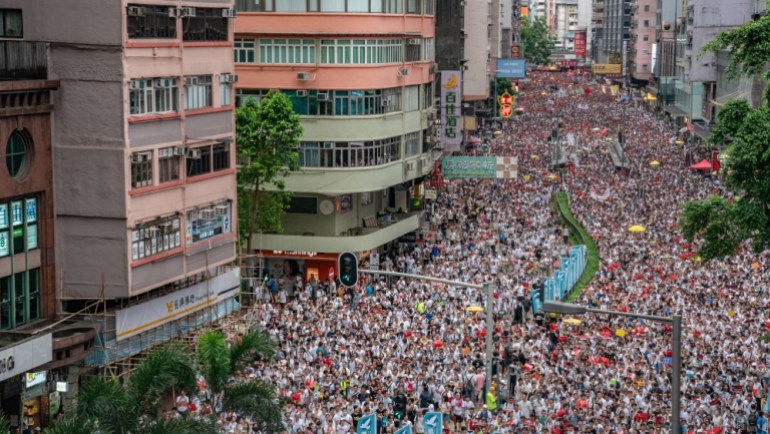
Amid the ongoing protests, Hong Kong voters thronged polling centres in November 2019 and overwhelmingly voted for pro-democracy candidates in local council elections.
China responded on June 30 with the broadly worded security law that punishes crimes such as secession or collusion with foreign entities with life sentences and gives Hong Kong police vast new unchecked powers. And for the first time, it allowed mainland intelligence services to operate in the territory.
Years-long struggle
Some 100 people have been arrested under the law as of mid-March, according to police. At least 53 have been charged, according to calculations based on local media reports. Police refused to provide updated or precise numbers to Al Jazeera.
Those formally charged include media tycoon Jimmy Lai and the organisers of the 2020 primaries for the pro-democracy camp.
Since Xi Jinping officially assumed China’s presidency in 2013, he has pursued a campaign to strengthen the nation through demands for absolute fealty, say critics. His government snuffed out citizen elections in Wukan in southern China.
And that has played out elsewhere in China, as well. Unrest and a series of attacks in the country’s far western region of Xinjiang sparked a concerted effort to cut off and control its mostly Muslim Uighur minority through a network of detention camps that have imprisoned an estimated one million people, according to the United Nations. Beijing has said what it calls vocational skills training centres are necessary to deal with what it terms “extremism”.
But for Beijing, Hong Kong has continued to be an intractable problem.
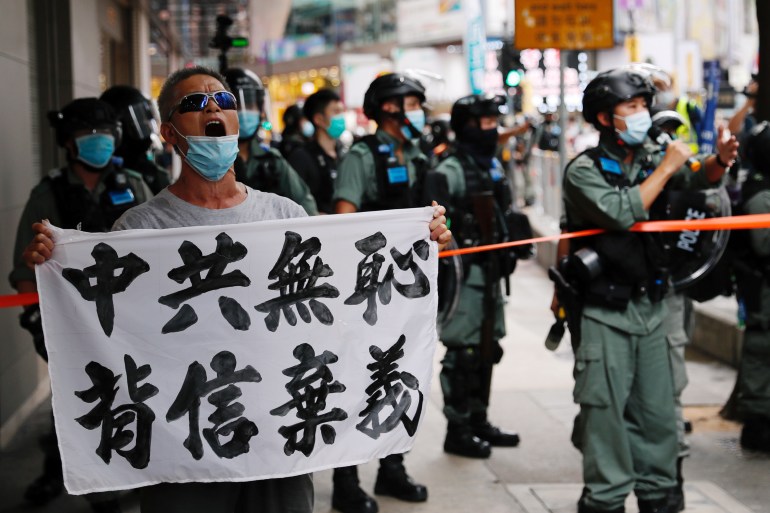
As British Crown colony subjects for more than a century, Hong Kong people were denied the right to govern themselves and had no voice in shaping their constitution.
But after Hong Kong people reacted with fury to the security apparatus’ response to the 1989 Tiananmen Square protests Beijing agreed to agree to a host of freedoms and the tantalising promise in Article 45 of the Basic Law, Hong Kong’s mini constitution, that the “ultimate aim” was that the city’s leader would be chosen through “universal suffrage”.
The terms have been in dispute ever since.
Demands for the vote and the right to elect the city’s leader have periodically erupted into mass campaigns.
Tens of thousands of residents joined a 79-day sit-in in 2014 that failed to give Hong Kong people the freedom to choose and elect Legislative Council members. Many participants said they were prompted to act by Beijing’s sudden decree in a white paper issued that June stating that Hong Kong did not have autonomy.
A brief campaign by young people demanding independence from China in 2016 drew repeated threats from Beijing officials that Hong Kong must not cross a “red line”. The 2019 protests were born out of this growing rage.
Throughout its brief history under Communist China, Hong Kong people have been subjected to demands to comply, obey and respect.
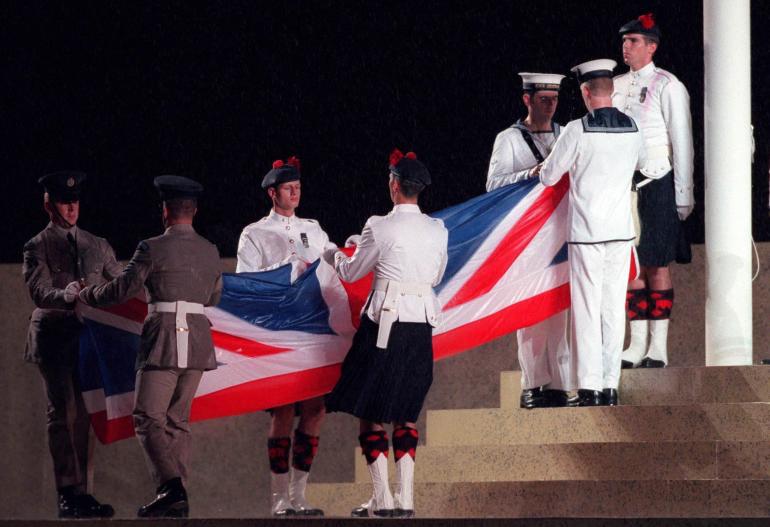
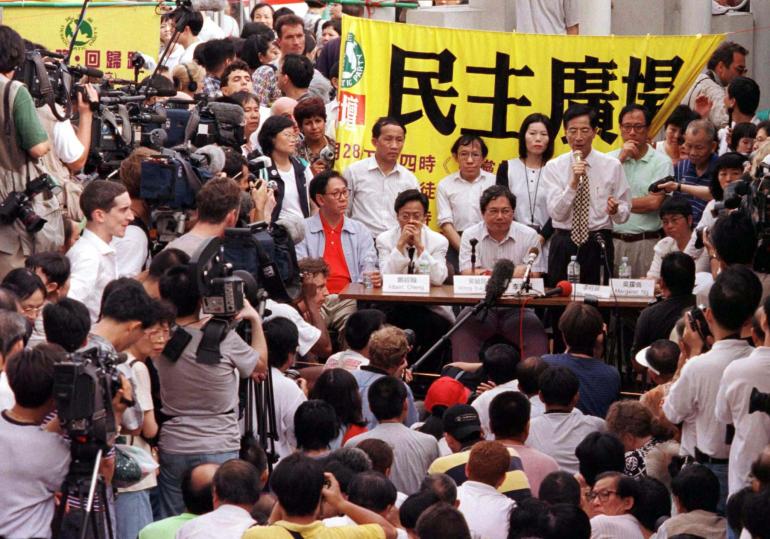
In 2013, a Chinese official, Qiao Xiaoyang, warned that future Hong Kong leaders must “love China and Hong Kong” and not oppose the central government.
Now, China appears to be getting what it has long wanted – a pliant, obedient Hong Kong.
“For the election in the future it’s not like a fair and real election,” said Debby Chan, a district councillor. “It’s a show that they put on to demonstrate to the others that Hong Kong is still a city where we still have elections.”